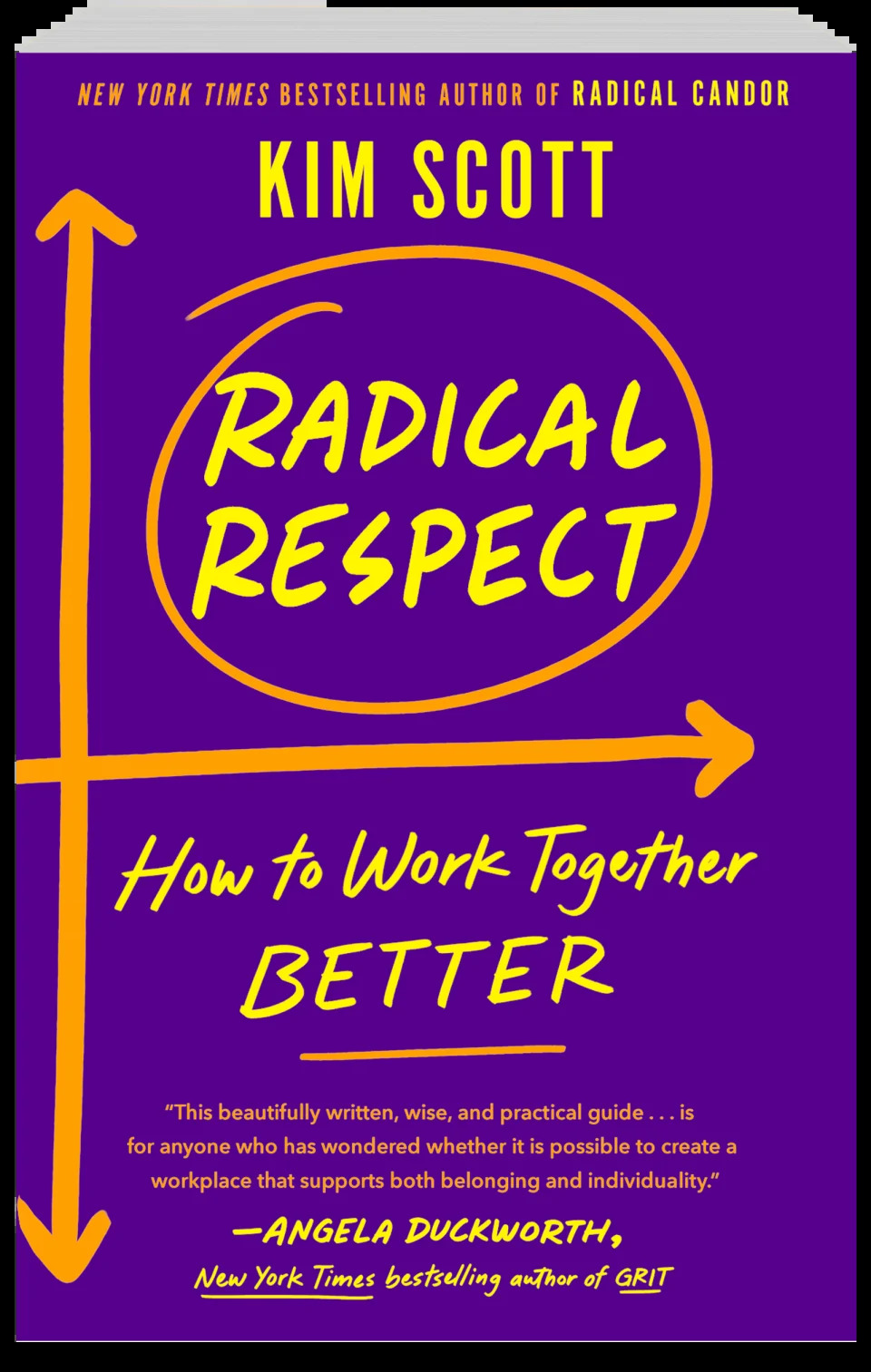News
Q&A: Why 'respect' is a radical workplace concept
Shortly after Kim Scott joined Google, a colleague told her not to wear a pink sweater to a meeting with the executives.
Uh, as you might imagine, not cool.
“The basic message, offered in the guise of helpful advice, was this: Try not to look too much like a woman in this meeting,” recalled Scott, who was then leading the DoubleClick team. “He thought he was being helpful.”
Scott, the author of the recently published book, " Radical Respect: How to Work Together Better ," was a CEO coach at Dropbox, Qualtrics, X (formerly Twitter), and other tech companies. Stories about bias, prejudice, and bullying in the workplace — and how they can give way to discrimination, harassment, and violence? She's got them.
The fix: You can't simply describe the problem. You have to figure out what to do about fixing it. Scott writes: “Awareness is the first step to change.”
Here's what Scott had to say about fixing the workplace, edited for length and clarity:
Kerry Hannon: What do you mean by "radical respect?"
Kim Scott: Radical respect is what happens when you’re in a work environment that optimizes for collaboration rather than coercion. There's a hierarchy, but it's not a dominant hierarchy. Everyone's individuality is honored rather than demanding conformity. Collaboration is the superpower of humanity. The first definition of respect is something that I have to earn. That's not what I'm talking about with radical respect. This is the kind of unconditional regard that we owe each other for our shared humanity, for our emotions, for our backgrounds, for our traditions.
What are the roadblocks to making radical respect a reality?
I'm going to boil it down to three big ones — bias, prejudice, and bullying. And one of the problems is that we often conflate these three things as though they're just one thing.
Each demands different responses. Unconscious bias is not meaning it. But prejudice is meaning it. Prejudice is a very consciously held belief, usually incorporating some kind of unfair and inaccurate stereotype. And bullying is just being mean. It's trying to dominate or coerce another person.
So how do we tackle these?
If you think it is bias, respond with an “I” statement: "I don't think you meant that the way it sounded." An “I” statement sort of holds up a mirror and invites the other person in to understand things from your perspective. And usually, because they didn't mean it, they'll change what they're saying.
Whereas if it’s prejudice, you need to use an “it” statement. An “it” statement draws a line between one person's freedom to believe whatever they want, but they can't impose that belief on you. An “it” statement can appeal to the law, it can appeal to a company policy, or it can appeal to common sense.
If it's bullying, you want to use a statement like: “You can't talk to me like that,” or a question like, “What's going on with you?” or “Why are you behaving this way?” The idea is that you're not taking whatever they're dishing out at you and responding to it. You're making them respond to you. So you're in an active, not a submissive stance.

Can you give me an example of prejudice?
I had returned to work after a five-month maternity leave. And I was chit-chatting with a guy before a meeting, and he said to me, “My wife doesn't work because it's better for the children.”
For me, this was a gut punch. I didn't think he really meant it the way it sounded. So I tried an “I” statement to make a joke. “I decided to show up at work because I wanted to neglect my kids.” I was expecting him to laugh, and then we would move on. But he doubled down. “Kim, you don't understand. It's really bad for your children that you've come back to work.”
I realized that it was prejudice. I used an “it statement.” I said: “It is an HR violation for you to tell me I'm neglecting my kids.” And that had the desired impact. He got nervous. And I said, look, I'm not going to make a deal out of it with HR. This is between you and me. It’s my decision together with my spouse how we raise our kids, just as it is your decision with your spouse how you raise your kids. Luckily, we're not raising children together so we don't have to agree about that.” If I hadn't said something, there would've been this simmering resentment for me. And it would've made it harder for us to work together.
How can women facing bias in the workplace push back, especially when it comes to pay?
There's one story in my book that I like. A woman engineer at Facebook found out that she was getting paid less than her colleagues who are men. And she was upset about it. She went to Mark Zuckerberg, and she said, “Look, all I want to do is build a great product. All I want to think about is building a great product. But when I find out that I'm being unfairly paid less than my colleagues, who are men, I'm going to think about that. And that's not what you want. That's not what I want.” He increased her pay.
The truth is women are good negotiators.

“ For many people, it boils down to reluctance to have an awkward conversation,” you write. Can you elaborate?
It's so tempting when you notice something that is a problem to not to say anything. You default to silence. For the co-worker I mentioned who upset me when I came back from maternity leave, [my response] meant that he wasn't going to say things like that to other women. One of the big risks of defaulting to silence is that you lose a sense of agency. I'm not saying you have to say something every single time, but if you're going to choose to be silent, make that a proactive choice, not just because it's awkward.
I chose to say something because I cared about my relationship with this person. I didn't think he was an evil guy. We can disagree with someone's perspective on a particular issue and still have that respect.
Kerry Hannon is a Senior Columnist at Yahoo Finance. She is a career and retirement strategist, and the author of 14 books, including " In Control at 50+: How to Succeed in The New World of Work" @kerryhannon .
Read the latest financial and business news from Yahoo Finance

